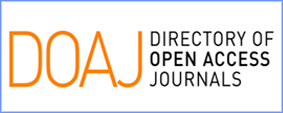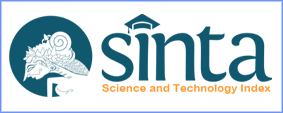MENGEMBANGKAN KEMAMPUAN PEMECAHAN MASALAH MELALUI PEMBELAJARAN STRATEGI HEURISTIK DENGAN PENDEKATAN METAKOGNITIF DITINJAU DARI KEMANDIRIAN BELAJAR MAHASISWA CALON GURU MATEMATIKA
Abstract
Keywords
Full Text:
PDFReferences
Cardelle, M.E. 1995. Effect of Teaching Metacognitive Skills to Student with Low Mathematics Ability. In M.J. Dunkin & N.L. Gage (Eds.), Teaching and Teacher Education : An International Journal of Research and Studies. 8, 109-111. Oxford : Pergamon Press.
Corte, E. de, Greer, B., & Verschaffel, L. 1996. Psychology of Mathematics Teaching and Learning, in D.C Berliner & R.C. Calfee (Eds.), Hand Book of Educational Psychology (pp. 491-549). New York: Macmillan
Darma, Yudi. 2012. Efektivitas Strategi Heuristik Dengan Pendekatan Metakog-nitif dan Pendekatan Investigasi Terhadap Kemampuan Pemecahan Masalah Mate-matika Pada Materi Pokok Barisan dan Deret Ditinjau Dari Kreativitas Siswa Kelas XII Madrasah Aliyah di Pontianak. Tesis pada PPS UNS. Surakarta: tidak dipublikasikan.
Garofalo, J. dan Lester F. 1985. Metacognition, Cognitive Monitoring and Mathematical Performance. Journal for Research in Mathematics Education.
Gartmann, S. dan Melissa F. 2000. Metacognition and Mathematical Problem Solving : Helping Students to Ask The Right Questions. Journal The Mathematics Educator Volume 6 Number 1
Goos, et.al. 2000. A Money Problem : A Source of Insight Into Problem Solving Actioan. Queensland : The University of Queensland [online].
Kirkley, J. 2003. Principles for Teaching Problem Solving. Indiana University : Plato Learning.
Krulik, S. & Rudnick, J.A. 1995. The New Source Book for Teaching Reasoning and Problem Solving in Elementary School. Boston, London, Toronto: Allyn and Bacon.
NCTM. 2000. Principles and Standard for School Mathematics. Resto, Virginia: The National Council of Teachers of Mathematics, Inc.
Polya, George. 1973. How to Solve It – A New Aspect of Mathematical Method (Second edition). New Jersey : Princeton University Press
Schoenfeld, Alan H. 1980. Heuristik in the Classroom, dalam Krulik, S. dan Reys, Robert E. (Eds). Problem Solving in School Mathematics. Virginia : NCTM.
Schoenfeld, A. 1988. When Good Teaching Least to Bad Results: The Disasters of “Well-Taught”Mathematics Courses. Educational Psychologyist. 23, 145-166.
Schoenfeld, A. 1992. Learning to Think Mathematically: Problem Solving. Metacognition, and sense Making in Mathematics. In D.A. grows (Ed.), Handbook of Research on Mathematics Teaching and Learning (pp. 334-370). New York: Macmillan.
Sickafus, Ed. 2004. Heuristics for Solving Technical Problem : Theory, Derivation, Application. Grosse lle : Ntelleck LLC.
Sujadi, Imam. 2011. Implementasi Matema-tika Terhadap Perkembangan Intelek-tual Peserta Didik. Sumbawa: Disampaikan Dalam Seminar Nasional Matematika di STKIP Hamzanwadi Selong.
The Liang Gie. 1983. Cara Belajar yang Efisien. Yogyakarta: Gadjah Mada University Press.
Article Metrics
Abstract has been read : 1780 timesPDF file viewed/downloaded: 0 times
DOI: http://doi.org/10.25273/jipm.v5i1.849
Refbacks
- There are currently no refbacks.
Copyright (c) 2017 Jurnal Ilmiah Pendidikan Matematika
View JIPM Stats
JIPM indexed by:
Copyright of JIPM (Jurnal Ilmiah Pendidikan Matematika) ISSN 2502-1745 (Online) and ISSN 2301-7929 (Print)













